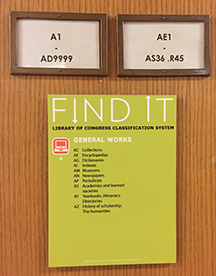
A few weeks ago I overheard someone say “The month of August is like one, long Sunday evening” and I smiled, knowing exactly what she meant. It’s a bittersweet time saying goodbye to a more relaxed summer pace in the libraries mixed in with our preparation for saying hello to the official start of the semester, which is still a week away. But if the analogy holds true, I believe the weekend is over and it’s already Monday morning despite the calendar indicating it’s still August!
Student athletes who compete in autumn sports arrived last week and international students arrived several days ago along with cohorts of students whose jobs facilitate the beginning of the semester or require intensive training (resident advisers, student academic mentors, orientation leaders and the like.)
As I arrived at work this morning, it was abundantly clear that today is “move in day” for first year students. Ready or not, we’re off to the races!
My work is not greatly affected by the seasonal shifts of the academic year. It’s true there are fewer library users in the summer months, but I remain as engaged as ever as an advocate for their ideas and improved experiences.
But even though I’ve been at this for awhile, it continues to surprise me how much time can elapse from first learning the germ of a good idea for an improved service to turning the idea into reality.
Almost one year ago, students in the Library Advisory Board and User Experience Group (LabX) suggested we post guides to LC class subject areas within the stacks at the point of need, for example placing a small poster at the beginning of the “As” saying: A class is for General Works, Encyclopedias, Dictionaries, etc.
This was a simple idea I thought would be easy to turn into reality. But the pathway took more twists than I imagined and it started with library staff discussions about instead providing a guide to the entire range of LC subjects centrally on each floor and making attractive LC Class subject guide bookmarks freely available. That is, er, not providing the stack guides at the point of need or curiosity.
This example of advocating for users is certainly a low stakes one; moving forward with the idea was not expensive or disruptive and the impact may not be measurable beyond any appreciation expressed by the student group which offered the suggestion.
But it illustrates that user advocacy can be tricky, particularly in an institutional environment that has a heart for consensus and a decision making structure that is sometimes opaque.
I have been grateful for this low-stakes project because it has provided me with needed practice to grow more confident professionally despite push back from trusted and well meaning colleagues.
I hung the stack guides up at the end of yesterday and felt victorious.
Best wishes for the new academic year everyone!
